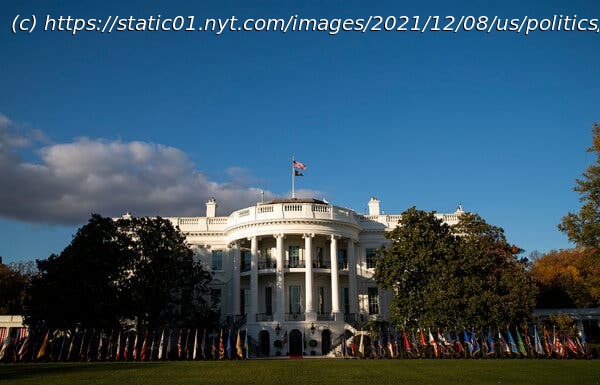The White House’s Summit for Democracy has drawn harsh criticism of domestic issues and questions about the guest list.
A few days before President Biden’s Summit for Democracy, a virtual meeting of more than 100 countries that opens on Thursday, the Chinese foreign ministry released a stinging report about the American democratic system. The “gunshots and farce on Capitol Hill have completely revealed what is underneath the gorgeous appearance of the American-style democracy,” the Chinese report said, citing the Jan.6 riot. In a country where “money decides everything,” the report charged, “an entrenched political paralysis” renders governing impossible. A spokeswoman for the Russian foreign ministry struck a similarly contemptuous tone in late November. “The United States claims the right to decide who is worthy of being called a democracy and who is not,” said the spokeswoman, Maria Zakharova, according to Tass, the state news agency. “It certainly looks cynical. I would say that it looks pathetic, given the state of democracy and human rights in the United States and in the West in general.” A backlash from authoritarian governments that were not invited to a summit meeting meant to support democratic values is hardly surprising. But even U.S. officials concede that American democracy is straining from political polarization, racial injustice and discord, voting rights restrictions and domestic extremism, among other issues. Some activists are urging Mr. Biden to devote more attention to problems at home before turning his focus abroad. “You can’t try to export and defend democracy globally when you can’t protect it domestically,” said Cliff Albright, a co-founder and executive director of the Black Voters Matter Fund, a progressive nonprofit group in Atlanta. “You can’t be the global fireman when your house is on fire.” That tension will loom over the two-day virtual gathering of leaders from model democracies like Germany, Japan and Sweden to countries with mixed records such as Georgia, Nigeria and Pakistan. The meeting, which will also include journalists, civil society activists and business leaders, is meant to be a forum for democracies to exchange ideas and critiques, U.S. officials say. Participants will also make commitments on political reform, corruption, human rights and other matters. “The U.S. is clearly going through a rough patch right now,” said Michael J. Abramowitz, the president of Freedom House, a nonpartisan group dedicated to human rights and democracy. The United States ranked 50th on Freedom House’s annual index of global freedom, he said.






